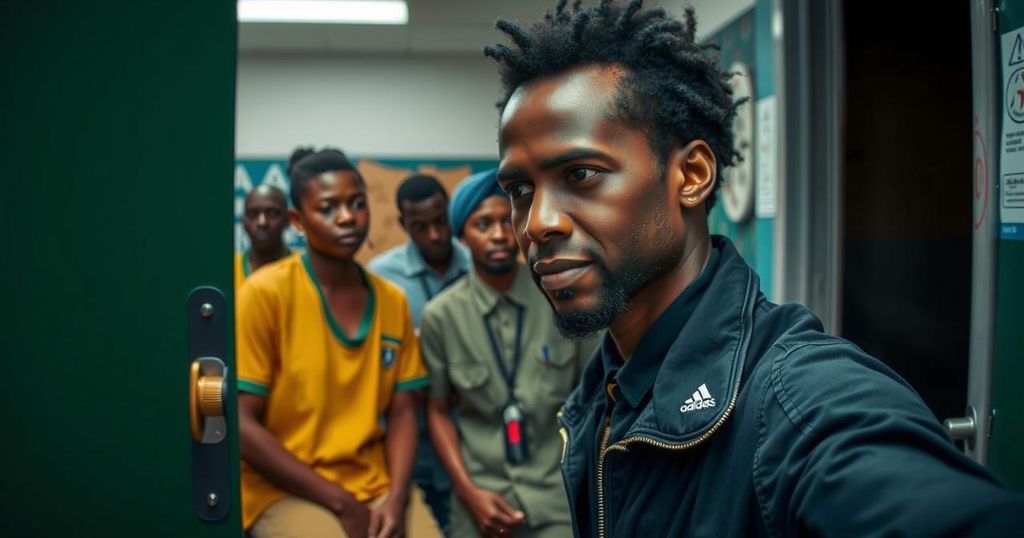Bobi Wine Visits Kizza Besigye in Jail, Condemns Government Actions
Bobi Wine visited Kizza Besigye in jail, stating he was in good spirits. Wine condemned the Ugandan government’s actions and called on Kenya to take corrective action. Baryomunsi confirmed Besigye’s arrest in Kenya was known to the authorities there. Besigye faces serious charges in a military court, and the incident has drawn international condemnation, highlighting ongoing repression in Uganda.
Uganda’s opposition leader, Bobi Wine, visited his fellow opposition figure Kizza Besigye, currently imprisoned, on Friday. Following the visit, Wine reported that Besigye was in “good spirits” despite the difficult circumstances. He criticized the Ugandan government for its actions against political dissent and urged the Kenyan government to implement necessary measures to avert future occurrences of similar incidents involving political opposition.
The Ugandan government spokesperson, Chris Baryomunsi, acknowledged on Friday that Besigye’s arrest in Kenya occurred with the knowledge of the Kenyan authorities. This clarification emerged following a statement from a Kenyan senior official, who announced an investigation into the matter two days prior. Despite initially denying involvement, Baryomunsi emphasized the collaborative intelligence operations between Uganda and Kenya, asserting that Besigye’s extradition would have been unachievable without such cooperation.
Besigye, a prominent critic of Ugandan President Yoweri Museveni, was abducted in Nairobi and subsequently brought before a military court in Kampala, where he faces charges of illegal firearm possession and soliciting external support against Uganda’s national security. He has rejected these accusations and contended that he should not be tried in a military tribunal, as he is a civilian. Besigye has been remanded in Luzira prison until December 2.
The Ugandan government defends the arrest by asserting that international laws allow for extraditions between nations, thereby justifying actions taken across borders. Additionally, the spokesperson for the United Nations Secretary-General Antonio Guterres expressed “extreme concern” over Besigye’s situation. Moreover, international rights organizations, including Amnesty International, have criticized this incident, framing it as a continuing pattern of transnational repression, particularly in light of a recent case where four Turkish refugees were forcibly returned by Kenya without due process. This situation reflects a broader trend in Uganda’s increasing crackdown on dissent, evidenced by the recent deportation and prosecution of opposition members from the Forum for Democratic Change (FDC) party.
The political climate in Uganda has become increasingly tense, particularly for opposition figures. Kizza Besigye, a long-time critic of the ruling government led by President Yoweri Museveni, has been a prominent symbol of political resistance. His recent abduction in Kenya and subsequent arrest in Uganda has drawn international condemnation and raised concerns about the government’s treatment of dissent. The role of neighboring Kenya in extraditing opposition figures has sparked discussions regarding bilateral relations and human rights practices, positioning both countries under scrutiny by the international community.
The situation involving Kizza Besigye exemplifies the ongoing challenges faced by opposition leaders in Uganda, particularly concerning state-sponsored repression. Bobi Wine’s visit emphasizes the solidarity among opposition members, while the Ugandan government’s justification for Besigye’s arrest raises questions about the integrity of cross-border agreements and the protection of political rights. As international scrutiny grows, both Uganda and Kenya must address the implications of their actions and reignite discussions surrounding human rights and governance.
Original Source: newscentral.africa




Post Comment